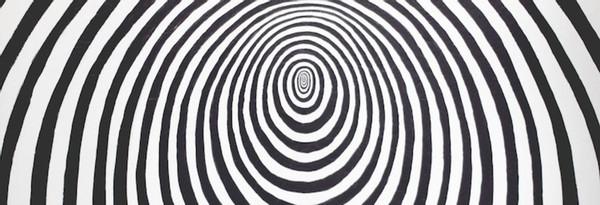Consciousness does not require a self
Curated from: iai.tv
Ideas, facts & insights covering these topics:
11 ideas
·3.43K reads
25
2
Explore the World's Best Ideas
Join today and uncover 100+ curated journeys from 50+ topics. Unlock access to our mobile app with extensive features.
The Illusion of Self
The concept that our consciousness is dependent on a sense of self has been present since Descartes. Recent studies in neuroscience and psychedelic experiences challenge this belief, suggesting that 'you' may not be who you think you are. James Cooke delves deeper into this idea.
38
559 reads
Understanding Consciousness
In our understanding of consciousness, we may feel like we are the one directing our attention to different objects. But this model can lead to confusion, as the true subject is not the bodily organism, but the "you" that is reading these words. Consciousness is a property of the body, not the conscious subject living in our heads.
We possess our bodies, but consciousness is a property of the body itself, not the conscious subject
36
414 reads
Consciousness in Scientific Method
Rene Descartes believed only humans have consciousness, which illuminates our experience of the world. But what makes that subject conscious?
Key Points:
- Consciousness originated with scientific method
- Humans seen as only conscious beings
- What makes the subject conscious?
This never-ending explanation is called the Cartesian Theatre by philosopher Daniel Dennett.
34
373 reads
Theories of Consciousness
To understand how consciousness arises, we must look at our brain's complex network. It processes information and performs tasks through hierarchical levels, yet the origin of consciousness remains a mystery. Two theories, bottom-up and top-down, offer different explanations.
- The bottom-up theory suggests consciousness arises from information processing in lower brain levels
- The top-down theory argues that consciousness results from introspection in higher brain regions
36
315 reads
The Dual Nature of Consciousness
Brain studies support both theories, showing that consciousness involves both sensory processing and higher cognitive functions. Understanding this duality can shed light on the complexities of consciousness in the future. 🧠💡
35
307 reads
An Intuitive Concept of the Mind
This concept of the mind has been widely incorporated into the scientific and philosophical study of consciousness. However, it can sometimes lead to misunderstandings about the actual experience itself.
32
306 reads
The Role of Reporting in Consciousness
The Brain's Involvement in Communication
When we communicate, the frontal areas of our brain are activated. But is this due to consciousness itself or just the act of reporting on it?
- One study found a clever way to determine this, by using physiological data instead of self-reporting
- When participants didn't have to report, the frontal activity lessened
It seems that the structures associated with introspection only report on consciousness, rather than underpinning it.
34
261 reads
The Self And Consciousness
Neuroscience shows that the self is not the owner of experiences. But what is consciousness?
In certain experiences, like meditation or drug-induced states, the psychological self disappears, but consciousness remains.
- Consciousness is a formless awareness - the space where experiences happen.
- It's not tied to a subject and doesn't need a self to experience it.
- Consciousness is like a container where the image of a self can occur.
While this may be challenging to understand, it's clear when experienced- a state where experiences arise without a self.
41
233 reads
The Role of Consciousness in Perception
The Phenomenal experience and beliefs
- Belief refers to the ability to hold that the world is a certain way.
- This aligns with Immanuel Kant's ideas that we only perceive phenomenal representations of reality.
- Therefore, consciousness does not allow us to understand the world as it is.
- At the core, consciousness allows us to hold beliefs about the qualitative character of the world.
39
223 reads
Constructing Beliefs for Survival
Our world is constantly changing and in order to survive, we must create our own understanding of it. Constructing beliefs is how we make sense of our surroundings and move forward.
Here are some key points to remember:
- We need beliefs to navigate the world.
- Beliefs are our own understanding of the world around us.
- Beliefs help us survive over time.
35
211 reads
Understanding How Our Brain Forms Beliefs
Our brain uses Bayesian inference to update beliefs, but without all possible evidence, it relies on free energy minimization. This aligns beliefs with reality, as explained by the Free Energy Principle.
- Bayesian inference: updating beliefs based on evidence
- Free energy minimization: aligning beliefs with reality
- Free Energy Principle: shaping our perception of the world
35
231 reads
IDEAS CURATED BY
ˢᵉˡᶠ-ᵈⁱˢᶜᵒᵛᵉʳʸ φ 𝚙𝚑𝚒𝚕𝚘𝚜𝚘𝚙𝚑𝚢 | ⚖ 𝒑𝒔𝒚𝒄𝒉𝒐𝒍𝒐𝒈𝒚 𝚿 | ѕριяιтυαℓιту 𖦹 + 𝕹𝖚𝖒𝖊𝖗𝖔𝖑𝖔𝖌𝖞 🌟💫✨𝓗𝓸𝓵𝓵𝓸𝔀 𝓓𝓮𝓯 ✨💫🌟 Thinker | Seeker | Dreamer | Learner
CURATOR'S NOTE
Recent studies in neuroscience and psychedelic experiences challenge this belief, suggesting that 'you' may not be who you think you are. James Cooke delves deeper into this idea
“
Similar ideas
15 ideas
What If Consciousness Is Not What Drives The Human Mind?
theconversation.com
12 ideas
The Brain as a Prediction Machine: The Key to Consciousness?
psychologytoday.com
7 ideas
Consciousness Goes Deeper Than You Think
getpocket.com
Read & Learn
20x Faster
without
deepstash
with
deepstash
with
deepstash
Personalized microlearning
—
100+ Learning Journeys
—
Access to 200,000+ ideas
—
Access to the mobile app
—
Unlimited idea saving
—
—
Unlimited history
—
—
Unlimited listening to ideas
—
—
Downloading & offline access
—
—
Supercharge your mind with one idea per day
Enter your email and spend 1 minute every day to learn something new.
I agree to receive email updates
